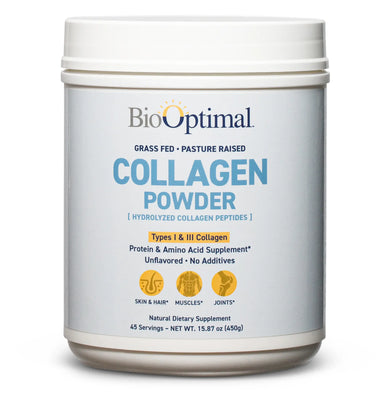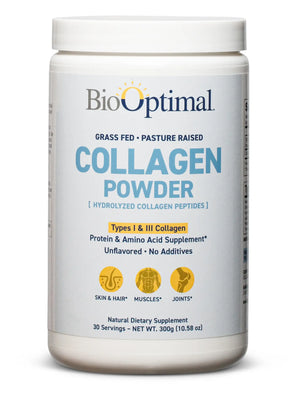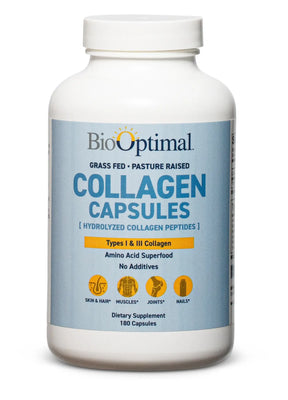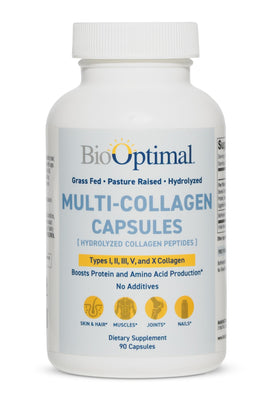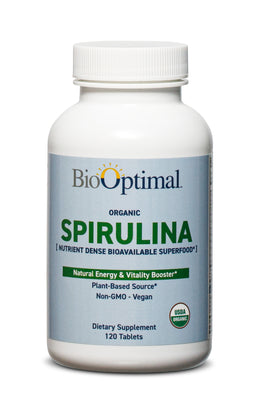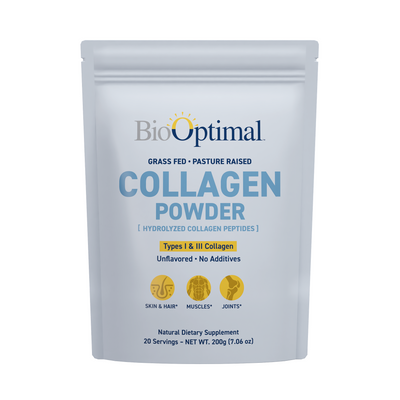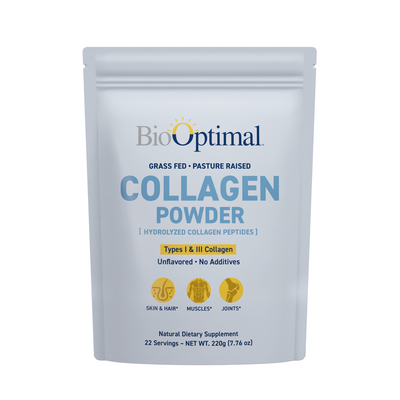Pregnant Women | Collagen Safe | Natural Sources | Consulting Doctor | Collagen Dosage | Postpartum Recovery
Louis's takeaways:
Yes, collagen is generally considered safe to consume during pregnancy, and may even offer benefits for skin elasticity, hair health, and overall protein needs. However, those with allergies to beef or marine collagen should avoid it, and it's important to balance collagen intake with other protein sources.
Table of Contents:
- What Is Collagen?
- Why Pregnant Women Consider Collagen?
- Is Collagen Safe During Pregnancy?
- What are the Types of Collagen Supplements?
- What are the Natural Sources of Collagen During Pregnancy?
- What are Benefits of Collagen during Pregnancy?
- What Are the Risks of Taking Collagen While Pregnant?
- Consulting Your Doctor
- How to Choose the Right Collagen Supplement?
- Collagen Dosage During Pregnancy
- Collagen and Postpartum Recovery
- Tips for Incorporating Collagen Into Your Diet
- Wrapping up
Collagen is a natural protein in your body that help strenghten connective tissues, skin, and bones. The body undergoes various changes during pregnancy, and collagen becomes essential now more than ever. Pregnancy is when nutrition is essential for supporting your health and your baby’s development. Collagen has gained attention for its potential benefits for skin, hair, joints, and overall well-being. However, a common question arises: Is collagen safe during pregnancy? In short, choosing high-quality collagen supplements is a wise and safe choice during pregnancy.

This article will provide a clear, research-backed explanation to help you decide whether collagen is safe during pregnancy.
What Is Collagen?
Collagen is found naturally in your body, providing strength and support to skin, bones, muscles, tendons, and connective tissues. It acts like a scaffold, helping to maintain elasticity and firmness while promoting overall tissue health. Collagen comes in various types, namely- Types I, II, and III being the most common. Type I supports skin and bone health, Type II focuses on cartilage, and Type III is vital for organs and blood vessels. Given its widespread importance, many ask: is collagen safe during pregnancy? Understanding collagen’s role can help you decide if supplementation is proper.
SUMMARY:
Collagen is a vital protein naturally found in the body, supporting the structure and strength of skin, bones, muscles, tendons, and connective tissues. Acting like a scaffold, it helps maintain elasticity, firmness, and overall tissue health.
Why Pregnant Women Consider Collagen?
Pregnancy often brings significant changes to your body, leading to common concerns such as joint discomfort, skin issues, and hair thinning. These changes prompt many expectant mothers to check out supplements like collagen. A common question is whether collagen powder is safe during pregnancy. Understanding the potential benefits can help address this concern.
Here’s why collagen is often considered during pregnancy:
-
Supports Skin Health- Many women experience stretch marks as the skin stretches during pregnancy. Collagen maintain skin elasticity, reducing the appearance of stretch marks.
-
Joint and Bone Support- Joint discomfort may increase as your body carries extra weight. Collagen supports connective tissues, which can help alleviate joint strain.
-
Hair and Nail Strength- Hormonal changes during pregnancy can lead to brittle nails and hair thinning. Collagen may help strengthen hair and nails, improving overall appearance.
-
Gut Health- Collagen supports the gut lining, which can benefit digestion—a common concern during pregnancy.
When considering collagen, always ask if collagen powder is safe during pregnancy. You should consult healthcare provider before introducing any supplements to your prenatal routine.
Is Collagen Safe During Pregnancy?
Whether collagen powder is safe during pregnancy is a common concern among expectant mothers. While research on collagen use during pregnancy is limited, available scientific studies and expert opinions suggest it is generally safe when taken in appropriate amounts. Collagen is a natural protein already present in your body, and high-quality collagen powders typically contain minimal additives, making them a suitable option for many. Take advice from the healthcare provider before starting any supplement.
What is the science behind collagen consumption during pregnancy?
-
Natural Composition: Collagen supplements provide amino acids like glycine, crucial for your body’s repair processes and your baby’s growth.
-
Limited Side Effects: Collagen is well-tolerated by most individuals, with few reported adverse reactions.
-
Expert Advice: Many healthcare professionals recommend collagen as a supportive supplement, especially for joint health and skin elasticity.
What are some Common Misconceptions about collagen during pregnancy?
-
“Collagen causes harm to the baby”: There is no evidence that collagen harms fetal development when taken responsibly.
-
“All collagen powders are the same”: Quality matters. Look for powders free from artificial additives and sourced from reputable brands.
To determine whether collagen powder is safe during pregnancy, prioritize discussing your options with a qualified healthcare provider.
SUMMARY:
Collagen is generally considered safe during pregnancy when taken in moderation and from high-quality sources. It supports joint health, skin elasticity, and fetal development. However, always consult your healthcare provider before use.
What are the Types of Collagen Supplements?
When exploring collagen supplementation during pregnancy,clarity about the varieties available can help you make an informed decision. The most common types are marine collagen, bovine collagen, and vegan collagen alternatives. Each offers unique benefits, so choosing one that aligns with your health needs and dietary preferences is essential. Below is an overview of these types to help you decide which option may be right for you.
Marine Collagen
Marine collagen comes from fish skin or scales and is rich in Type I collagen, which supports skin, hair, and bone health. Its high bioavailability allows for efficient absorption, making it a popular choice for addressing skin elasticity and joint comfort during pregnancy. Marine collagen is generally considered safe for those wondering if collagen powder is safe during pregnancy, provided it is sourced responsibly and free from heavy metals or contaminants.
Bovine Collagen
Bovine collagen comes from cows' hides or bones and contains Type I and Type III collagen. This combination supports skin, connective tissue, and organ health. It’s widely available and cost-effective. Pregnant women often choose bovine collagen for its benefits to skin elasticity and joint support but confirm its safety by selecting a high-quality, grass-fed source.
What are Vegan Collagen Alternatives?
Vegan collagen is not actual collagen; it is a plant-based formula designed to boost the body’s natural collagen production. Ingredients like silica, vitamin C, and amino acids are included to support collagen synthesis. These alternatives are ideal for those avoiding animal products. While they may be less direct, they offer a safe option for pregnancy when balanced with a nutrient-rich diet.
What are the Natural Sources of Collagen During Pregnancy?
If you’re wondering if it is safe to take collagen during pregnancy but prefer to prioritize natural options, incorporating collagen-rich foods and nutrients that boost your body’s collagen production can be an excellent alternative. A balanced diet creates the building blocks for healthy skin, joints, and connective tissues.
Foods That Support Collagen Production
Certain foods naturally contain collagen or help your body synthesize it. Bone broth replenishes collagen, particularly Types I and III. Other options include chicken, fish, and egg whites, which provide essential amino acids like glycine and proline.
Collagen-Boosting Nutrients
Collagen production also depends on nutrients like vitamin C, zinc, and copper. Get vitamin C from citrus fruits and green vegetables, while nuts, seeds, and whole grains provide zinc and copper. Adding these to your meals supports your body’s natural ability to produce collagen during pregnancy.
SUMMARY:
During pregnancy, natural collagen sources include bone broth, chicken, fish, and egg whites—rich in amino acids vital for collagen synthesis. Nutrients like vitamin C, zinc, and copper from fruits, vegetables, nuts, and seeds also boost your body’s collagen production naturally.
What are Benefits of Collagen during Pregnancy?
Collagen supplements are increasingly popular among pregnant women for addressing common physical changes and discomforts. While you may still wonder if it is safe to take collagen during pregnancy, many choose collagen for its natural benefits. Below are the key ways collagen may support your body during pregnancy.
How does Collagen Help with Healthy Fetal Growth during pregnancy?
Collagen is a vital protein that supports healthy pregnancy and fetal growth by promoting skin elasticity, joint health, and tissue repair for the mother. During pregnancy, the body undergoes significant changes, including the stretching of skin and ligaments. Collagen helps maintain the structural integrity of these tissues, reducing discomfort and the risk of stretch marks. For the growing baby, collagen provides essential amino acids that contribute to the development of strong bones, cartilage, and skin. Incorporating collagen into a balanced diet, through high-quality supplements or collagen-rich foods, can help ensure both the mother and baby thrive during pregnancy.
Skin Elasticity and Reducing Stretch Marks
As your body grows, skin stretches rapidly, often leading to stretch marks. Collagen supports skin elasticity by providing the essential proteins to maintain firmness and hydration. Consuming collagen may help reduce the appearance of stretch marks over time. While no supplement guarantees prevention, incorporating collagen into your diet or routine can uplift skin resilience during pregnancy.
Joint and Bone Support
Due to weight gain and hormonal changes, pregnancy places extra strain on joints and bones. Collagen help maintain cartilage and connective tissues, reducing joint discomfort and supporting bone health. This can make everyday movements more comfortable, promoting overall well-being throughout pregnancy.
Hair and Nail Health
Hormonal fluctuations during pregnancy can cause brittle nails and increased hair shedding. Collagen provides the amino acids for keratin production, strengthening hair and nails. Adding collagen to your prenatal routine may help improve their texture and appearance, leaving you feeling more confident.
What Are the Risks of Taking Collagen While Pregnant?
While collagen is suitable for most individuals, it’s natural to ask, "Are there any risks, and is it safe to take collagen during pregnancy?" Understanding potential concerns is essential before adding supplements to your routine.
One possible risk is allergic reactions. Some collagen powders are sourced from fish, eggs, or other animal products, which could trigger allergies in sensitive individuals. Always check the ingredient label and choose a product that meets your dietary needs.
Over-supplementation is another concern. Excessive collagen intake may lead to imbalances in amino acids or interfere with nutrient absorption. This underscores the importance of moderation and adhering to recommended dosages.
Opt for high-quality collagen from reputable brands and consult your healthcare provider to minimize risks. They can help determine if collagen is safe for your specific needs during pregnancy and how to incorporate it effectively.
SUMMARY:
Taking collagen during pregnancy is generally safe but may carry risks like allergic reactions—especially if sourced from fish or eggs—and over-supplementation, which can disrupt nutrient balance. Always consult your healthcare provider and choose high-quality, clean-label products.
Consulting Your Doctor
Before adding collagen to your pregnancy routine, seeking medical guidance is essential. Discuss any allergies, medical conditions, or other supplements you’re taking to avoid potential interactions.
Ask questions like
-
Is collagen beneficial for my pregnancy?
-
What dosage is safe?
-
Are there specific brands or sources you recommend?
This conversation ensures you make informed choices and safely support your health and your baby’s development during pregnancy. Always prioritize expert advice.
How to Choose the Right Collagen Supplement?
Choosing the right collagen supplement during pregnancy involves prioritizing quality and safety. To address whether it is safe to take collagen during pregnancy, look for products that meet high standards for purity and effectiveness.
Focus on supplements tested for quality by third-party laboratories. Opt for collagen powders sourced responsibly, such as grass-fed bovine or sustainably harvested marine collagen. High-quality supplements are free from heavy metals, pesticides, and other contaminants.
Avoid products with harmful additives like artificial flavors, colors, or sweeteners. These ingredients may not be suitable for pregnancy and could pose unnecessary risks. Check the ingredient label for simplicity and transparency, ensuring the product contains pure collagen and minimal extras.
Choosing a reputable brand that discloses sourcing and testing practices can provide peace of mind.
Collagen Dosage During Pregnancy
There is no specific recommended dosage of collagen during pregnancy. However, most experts suggest consuming 2.5–15 grams daily as a safe range. Collagen benefits skin elasticity and joint health, which may be especially important during pregnancy as the body undergoes significant changes. Collagen supplements such as hydrolyzed collagen peptides are well-absorbed and easily incorporated into a balanced diet. Take advice from healthcare provider before starting any supplementation during pregnancy to ensure safety and appropriate dosages based on individual needs and conditions.
Signs of Overconsumption of Collagen
Overconsumption of collagen, though rare, may lead to some side effects. Common signs include digestive issues such as bloating, gas, and heartburn. Excessive protein intake disrupts the kidneys, particularly those with pre-existing kidney conditions. Taking collagen in large quantities might cause an imbalance in amino acids, leading to imbalances in nutrition. Additionally, some people may experience allergic reactions, including skin rashes or itching. If these symptoms occur, reducing the dosage or stopping collagen and consulting a healthcare professional for further advice is advisable.
Collagen and Postpartum Recovery
Collagen plays a significant role in postpartum recovery by supporting tissue repair and regeneration. After childbirth, collagen aids in the healing of the skin, muscles, and pelvic tissues that may have been stretched or damaged during labor. It minimizes stretch marks, and promotes healthy hair and nail regrowth, which are often affected after pregnancy. Additionally, collagen supports joint health, which can be beneficial as new mothers navigate the physical demands of caring for a newborn. Regular collagen intake can expedite overall recovery, ensuring better health and vitality post-delivery.
Supporting Overall Healing Postpartum
Postpartum healing involves repairing internal tissues and organs, which collagen helps facilitate. Collagen is integral to connective tissues, and aids in the regeneration of muscles, skin, ligaments, and cartilage. Its benefits extend to restoring the skin's elasticity after pregnancy, reducing stretch marks, and alleviating joint pain, which can be shared in the postpartum period. Collagen also contributes to breast milk production and can support healthy hormonal balance. Consuming collagen-rich foods or supplements in combination with a balanced diet can expedite healing, improve recovery, and promote overall well-being after childbirth.
SUMMARY:
Collagen supports postpartum recovery by aiding tissue repair, minimizing stretch marks, and promoting healthy skin, joints, hair, and nails. It also helps restore elasticity and muscle strength, making it a valuable supplement for healing and overall wellness after childbirth.
Tips for Incorporating Collagen Into Your Diet
Having collagen is easy and there are delicious ways to incorporate the supplement with a few simple meal adjustments. Here are some practical tips:
-
Add to Smoothies- Blend collagen peptides into smoothies for a quick and convenient boost. Since collagen is tasteless and dissolves quickly, it pairs well with fruits, vegetables, or protein powders.
-
Incorporate into Coffee or Tea- Mix powdered collagen into your morning coffee or tea. The powder dissolves seamlessly and won’t affect the flavor, making it a hassle-free addition to your daily routine.
-
Make Bone Broth—Bone broth is naturally collagenous, especially if made with animal bones and joints. Drinking it as a soup or as a base for sauces and stews can significantly boost your collagen intake.
-
Add to Oatmeal or Yogurt- Stir collagen powder into your breakfast oatmeal or yogurt. It blends well with sweet or savory flavors and is an easy way to incorporate collagen into your diet in the morning.
-
Bake with Collagen- Add collagen powder to baked goods such as muffins, pancakes, or cookies. It doesn’t alter the texture but gives an added boost of protein.
Easy Recipes for Collagen-Rich Meals
-
Collagen Smoothie- Blend one scoop of collagen peptides, a banana,almond milk, spinach, and a spoonful of almond butter for a nutrient-packed breakfast or snack.
-
Bone Broth Soup- Simmer beef or chicken bones with vegetables like carrots, celery, and onions for 12-24 hours, then strain and season. Drink as a soup or use it in recipes like stews.
-
Collagen-Powered Pancakes- For a protein boost, Add 1-2 tablespoons of collagen powder to pancake or waffle batter.
How to Use Powdered Supplements Safely
Here are some tips on safely consuming powdered supplements:
-
Start with Small Doses- Begin with a lower dosage (1-2 grams) and gradually increase it to the recommended amount (2.5–15 grams daily). This helps your body adjust and minimizes any potential digestive issues.
-
Follow Manufacturer's Instructions- Always read the label on your collagen supplement to ensure proper dosage and use. Each brand may vary in concentration, so follow specific guidelines.
-
Stay Hydrated— Collagen is a protein, so consuming it may require more water for optimal digestion and absorption. Drink plenty of water throughout the day.
-
Check for Allergens- Check the label for potential allergens like shellfish, dairy, or gluten, as some collagen powders may contain traces of these ingredients.
Wrapping Up
Collagen is generally considered safe during pregnancy when consumed appropriately, offering benefits such as supporting skin elasticity, joint health, and overall tissue repair. However, as with any supplement, it’s essential to consult a healthcare provider before adding collagen to your routine, especially during pregnancy. You can ensure easy absorption and effectiveness by choosing high-quality, hydrolyzed collagen peptides.
For those seeking premium, safe, and effective collagen supplements, BioOptimal offers a range of products designed to support your health throughout pregnancy and beyond. Know the difference with BioOptimal collagen today and start your journey to better health!


